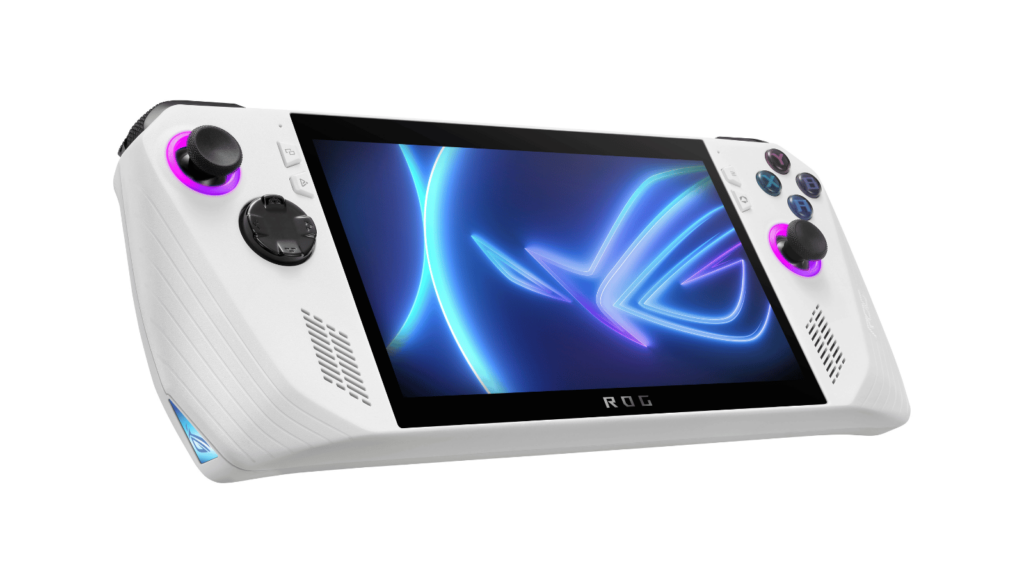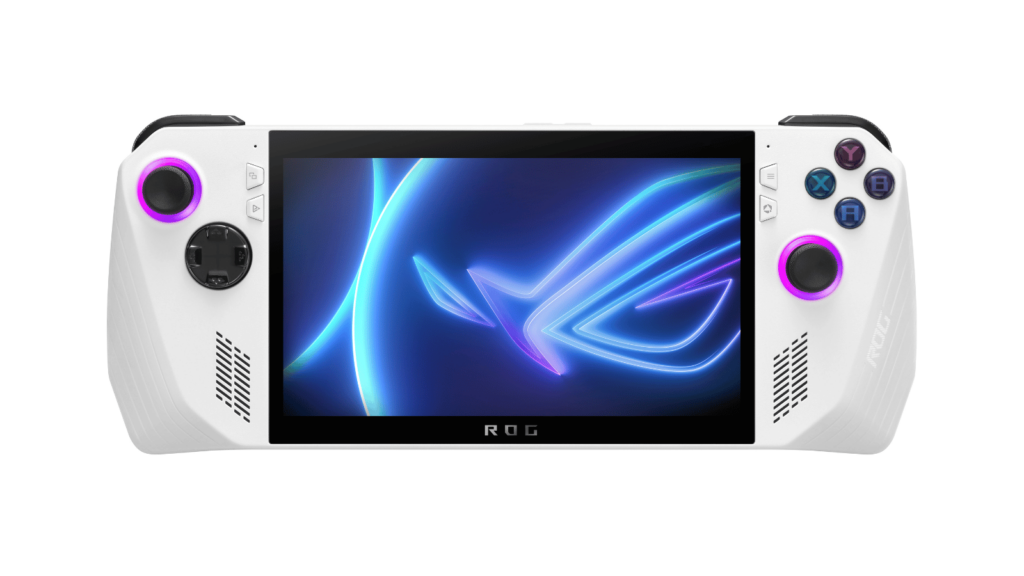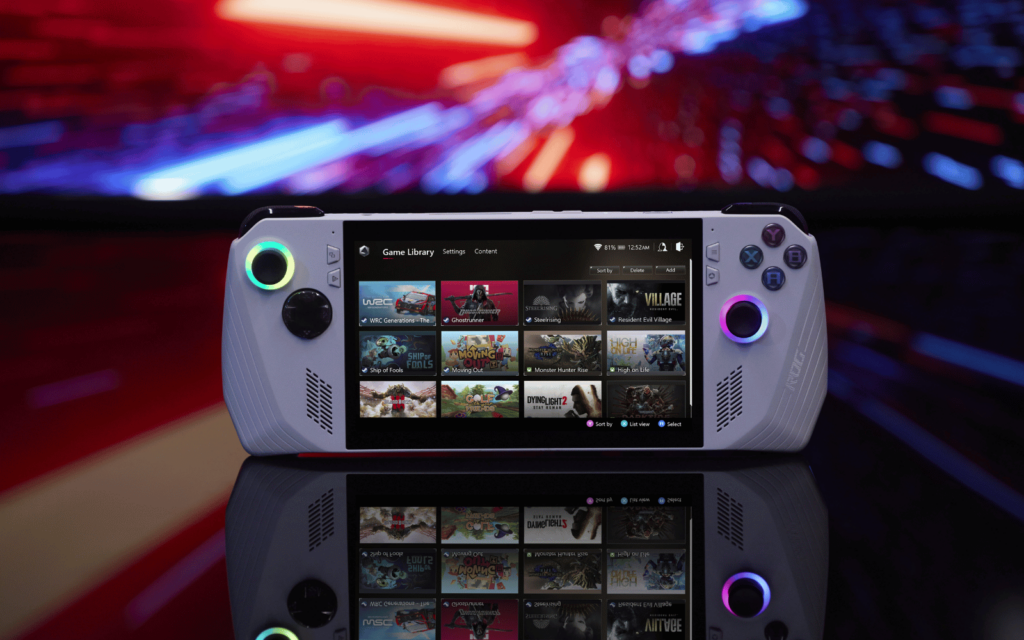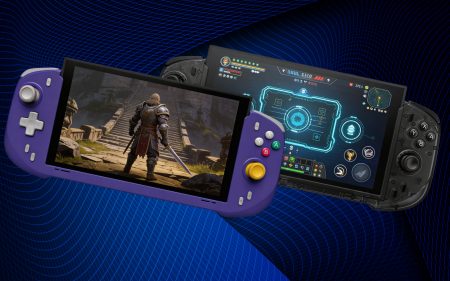Earlier this month, Asus surprised everyone by announcing a new handheld gaming console to rival Valve’s Steam Deck and Nintendo’s Switch – the ROG Ally. With the initial announcement being on 1 April, many people were a little sceptical. And rightly so.
Every year, companies around the world and across every industry seem unable to resist the urge for a mock announcement or joke. Some of them kinda work, and some… definitely don’t.
But Asus assured everyone the ROG Ally was, in fact, a real product, and now, ahead of the global launch event on 11 May, we know a little more about it. Like the fact that it will be launching in South Africa later this year.
A new Asus ROG friend
 We also know more about the Ally’s specs. Powering everything is a custom AMD APU (Accelerated Processing Unit) called the Ryzen Z1. If you didn’t know, an APU is a single chip that combines the capabilities of a CPU and a GPU.
We also know more about the Ally’s specs. Powering everything is a custom AMD APU (Accelerated Processing Unit) called the Ryzen Z1. If you didn’t know, an APU is a single chip that combines the capabilities of a CPU and a GPU.
This one uses AMD’s new Zen 4 and RDNA 3 microarchitectures, which may or may not interest you. If it doesn’t, Asus’ claim that the ROG Ally will offer double the performance of the Steam Deck might.
That AMD APU will be paired with 16GB of LPDDR5 RAM and a 512GB PCIe Gen 4 SSD. Owners will also have the option to expand their storage via a UHS-II microSD card clot. It would be nice if the RAM and SSD are user-upgradable, but we wouldn’t count on it.
Lots of power brings lots of heat, especially in a device this size. Asus is managing the heat with a pair of fans that reportedly run much quieter than the competition. Along with the fans, the ROG Ally features what Asus is calling a “zero gravity thermal system” that uses “anti-gravity heat pipes”. The company didn’t mention if it will be shipping the Ally to space but it did say you could play upside down and the heat pipes will still perform as required.
No Asus OLED on this one
 Sticking with the ‘double the Steam Deck’ theme, the ROG Ally’s display also offers double the performance of that of the Steam Deck. The 7in 16:9 1080p touch display will manage a 120Hz refresh rate (while the Deck only offers 60Hz) and support AMD Freesync.
Sticking with the ‘double the Steam Deck’ theme, the ROG Ally’s display also offers double the performance of that of the Steam Deck. The 7in 16:9 1080p touch display will manage a 120Hz refresh rate (while the Deck only offers 60Hz) and support AMD Freesync.
Unfortunately, this isn’t another stellar OLED panel as seen in pretty much all of the company’s laptops. OLED looks nice, but it doesn’t do a device’s battery life any favours. A 1000:1 contrast ratio, 7ms response time, and 500 nits of brightness round out the display specs.
Unlike the devices from Valve and Nintendo, the ROG Ally will run Windows 11 and won’t be constrained to a single gaming ecosystem. You’ll have access to games in your Steam, Epic Game Store, EA Play, and Ubisoft Connect libraries.
A purchase will also net you a free three-month subscription to Xbox Game Pass Ultimate, meaning cloud gaming should be possible as well. That doesn’t mean it can play everything – Nintendo’s games will always be off-limits.
Read More: Logitech’s answer to the Switch and Steam Deck looks cool, but you can’t have it
Other features include WiFi 6E for fast wireless connectivity, internal haptic feedback motors, dual front-facing Dolby Atmos-enabled speakers, a fingerprint reader, and Asus’ proprietary XG Mobile connector for plugging in an external GPU.
Putting in the work
 From everything we’ve seen so far, the ROG Ally could be a winning formula for Asus. But we’ll only be able to confirm that when we have one in our hands.
From everything we’ve seen so far, the ROG Ally could be a winning formula for Asus. But we’ll only be able to confirm that when we have one in our hands.
Speaking of hands, Asus has apparently spent a lot of time (the last five years) obsessing over how the Ally will feel in your hands. The joystick, D-pad, and button layout have been lifted from Microsoft’s Xbox controller and there is a slip-resistant texture to the sides and shoulder buttons.
Despite all the tech packed inside, the company has managed to keep the ROG Ally’s weight down to a surprisingly low 608g. It says it got there by using lightweight materials and years of engineering samples but those anti-gravity pipes probably also have something to do with it.
The ROG Ally seems almost too good to be true, probably because we don’t know what it will cost yet. In the US, the Steam Deck 64GB goes for $400 (R7,310) and tops out at $650 (R11,900) for the 512GB model (when you can find one in stock). But that price is subsidised by Valve so chances are slim that Asus will be able to match it.






